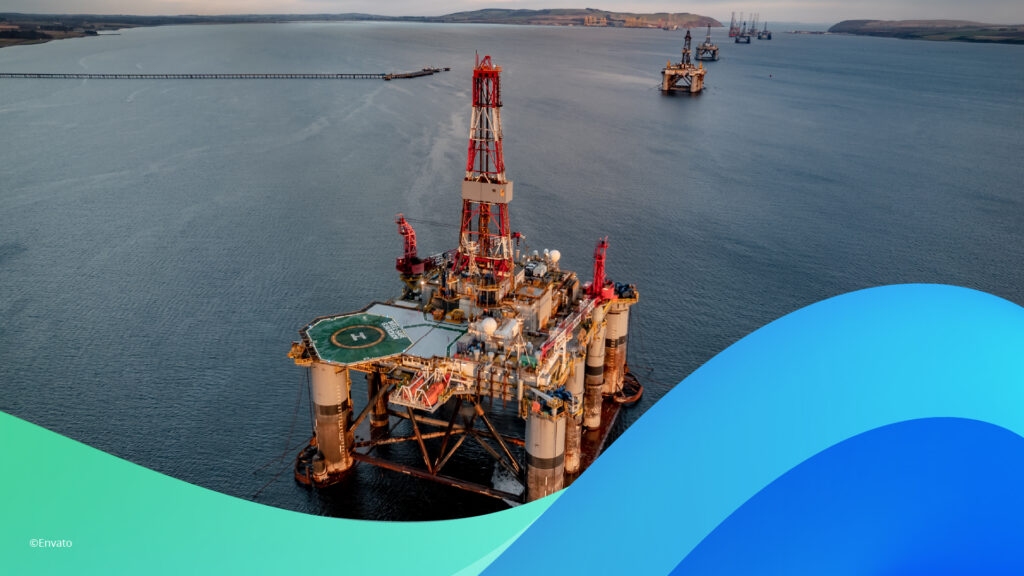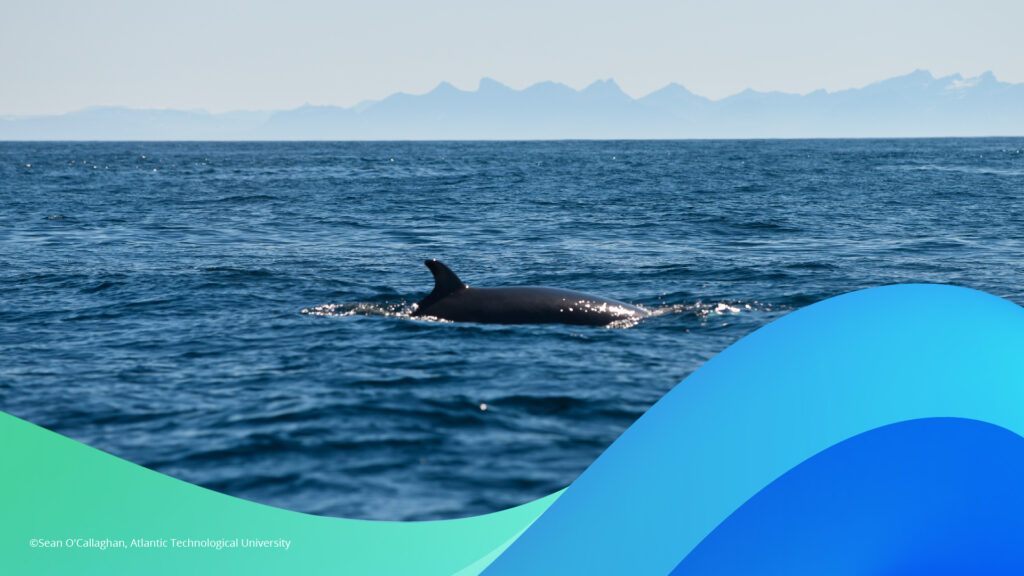Paula Silvar and Fiona Culhane have recently joined the OceanICU project as postdoctoral researchers, via consortium partner The Marine Institute in Ireland, a co-lead institute for Work Package 5 – Impacts of Fishing and Industrial Extraction Processes on the Ocean C Cycle.
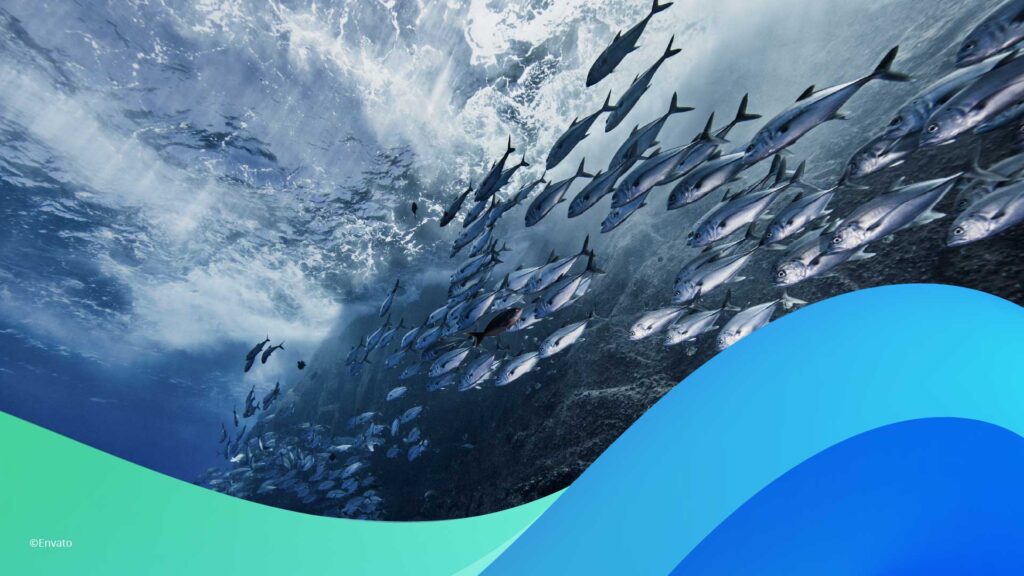
Why are we talking about fish?
Because the role of fish in the carbon cycle on the continental shelf is not well quantified or understood, and the effects of fishing activities to these processes are largely unknown.
It helps to have a little context: The ocean serves as a massive carbon sink, absorbing carbon dioxide (CO2) from the atmosphere, regulating the climate, and helping to create a habitable planet for people. Phytoplankton play a crucial role in this process through photosynthesis, converting CO2 into organic carbon. This organic carbon is then transferred through the marine food web. The role of plankton in the carbon cycle in the open ocean, and how it leads to carbon sequestration in the deep sea, has been extensively studied.
What type of research is currently underway?
Our research will look into the contribution of fish to carbon stocks and sequestration. As part of the project, researchers from the Marine Institute along with our OceanICU collaborators will focus on improving the understanding of ‘fish carbon’ by using an example of the Celtic Sea shelf seas. The Celtic Seas are an important fishing ground in Europe, with fourteen nations currently fishing within the Celtic Seas ecoregion.
For more information, check out the ecosystem overview
A special interest in fish poop
A special interest of ours is the role of fish faecal pellets. Fish faecal pellets, or poop, are an important export of organic carbon to the seafloor (Figure 1). We want to explore what happens with the carbon cycle in the case of having less fish (and hence poop), when they are removed through fishing.
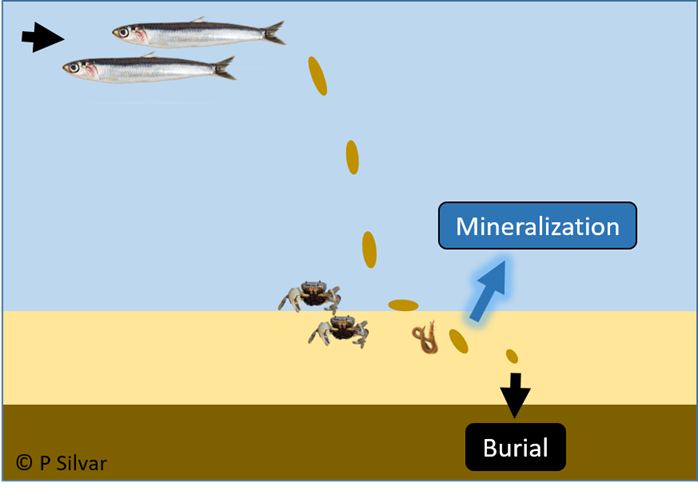
Figure 1: Fish faecal pellets sink to the ocean floor where remineralization and burial takes place
Why are shelf seas important to consider
Shelf systems specifically require further attention and research, as the majority of the fishing activity occurs here, including bottom impacting fishing methods—their shallow nature means they are highly productive and combined with seafloor benthic processes, the interactions affecting the carbon cycle may have greater relevance here.
The team at the Marine Institute will use ecosystem models to improve our knowledge of the contribution of fish and the implications of fisheries in carbon sequestration in shelf systems.
Why should we care?
We need to understand the role of fish and fisheries, and other marine industries, in the carbon cycle, so that we can make sustainable choices about the activities we carry out. Currently we really do not know how fishing and other blue economy activities impact the carbon cycle.
People, the sea and the carbon cycle
All of us rely on having healthy marine ecosystems for all the contributions that the sea makes to our lives and that benefit our health, culture, well-being, and economies (Figure 2). The carbon cycle underpins the healthy functioning of marine ecosystems.
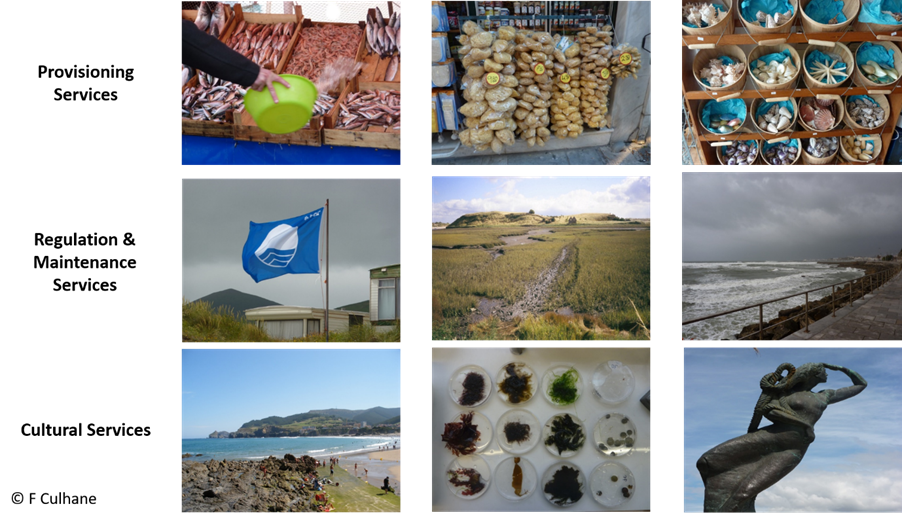
Figure 2: The sea contributes to our well-being by supplying ecosystem services such as food, climate regulation, opportunities for recreation and cultural heritage.
Changes in the carbon cycle could impact these contributions and in turn impact activities such as fishing itself. Alongside building an understanding of this through ecosystem modelling, in this project, we will explore how society and industry are connected to the ocean’s carbon cycle and how changes in it might lead to a change in our practices.
Does investigating that connection, between society and industry, involve engaging with stakeholders?
Yes. An important part of the OceanICU project is making meaningful connections with society to collaboratively develop sustainable management options through informing factors such as understanding:
- what the knowledge gaps are;
- how policies might affect the carbon cycle;
- what are the needs of stakeholders like fishers in relation to the carbon cycle;
- what are the conservation concerns.
We will be engaging with interested parties to get input on these and other issues in various ways; we will hold a series of in-person and online workshops and carry out interviews and surveys.
Who can get involved?
Anyone with an interest in climate, fisheries, marine extraction, areas beyond national jurisdiction and marine policy, and those with knowledge of marine industry trends, ocean futures, management and policy could make a valuable contribution to the understanding we are building in OceanICU.
Through these engagement activities, we can provide stakeholders with information they do not currently have and with the new knowledge we develop through the project, some of which will be informed by their contributions. In addition, stakeholder engagement will contribute to tools, decision-making, policy-making, licensing, etc., in relation to ocean carbon.
If you are an interested stakeholder, please fill out the stakeholder sign-up sheet.

Dr. Paula Silvar
Dr. Paula Silvar is an Ocean ICU postdoctoral researcher at the Marine Institute in Ireland. Her main research interests are fish population and ecosystem dynamics, and the effects of fisheries. Using ecosystem models, she studies the contribution of fish in carbon sequestration and the potential impacts of fisheries.

Dr. Fiona Culhane
Dr. Fiona Culhane is an Ocean ICU postdoctoral researcher at the Marine Institute in Ireland. Fiona is a marine ecologist who is interested in social-ecological interactions and in developing assessments and understanding of how human activities impacting ecosystems affect the ecosystem services supplied by them.

